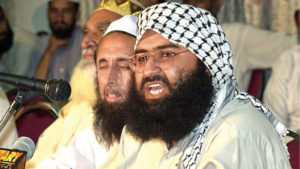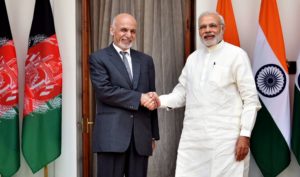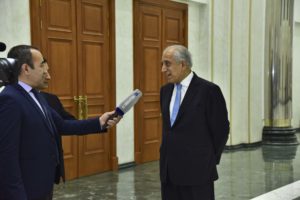Yasaswi Tanya gives a detailed account of what happens when a individual/entity is listed as a terrorist under the UN Security Council and also highlights its implication on the listing of Masood Azhar.
Pakistan - 4. page
Pakistan’s Financial Crisis: A Negotiation with the IMF
Hannah K writes, If Pakistan is to tackle its current account deficit in the long run, the government must take substantial steps to improve the macroeconomic conditions of the country and modernize its industrial sector to become more competitive in international markets.
“Fragile Past, Unstable Future”: Assessing India’s Strategic Partnership With Afghanistan
Anant Mishra writes, New Delhi should remain committed and dedicated towards rebuilding Afghanistan. Strategically, this policy would ensure significant presence in Afghanistan without interfering in the already complex Afghan domestic politics.
Reading the Tea Leaves III -Afghan Elections and ‘The Butterfly Effect’
Lt Gen GS Katoch, PVSM, AVSM, VSM (Retd) writes the initial US euphoria over the Afghan peace talks seems to be transitioning into wary pessimism. The US and the Afghan Taliban may appear to be talking but certain issues are very vexing
Masood Azhar: India’s Diplomatic Win
Oishik writes, listing of Jaish-e-Mohammed leader Masood Azhar into the United Nations list of global terroristswin, is a diplomatic win for India in their bid to prove Pakistan’s latent behaviour towards persecuting terrorists in their land.
Bulldozing Mosques, China’s New Strategy in Xinjiang
Hayat-e-Fatima writes, bulldozing mosques is China’s latest strategy to wipe out the existence of Islam from its Xinjiang region, and unfortunately the world hasn’t spoken against it.





